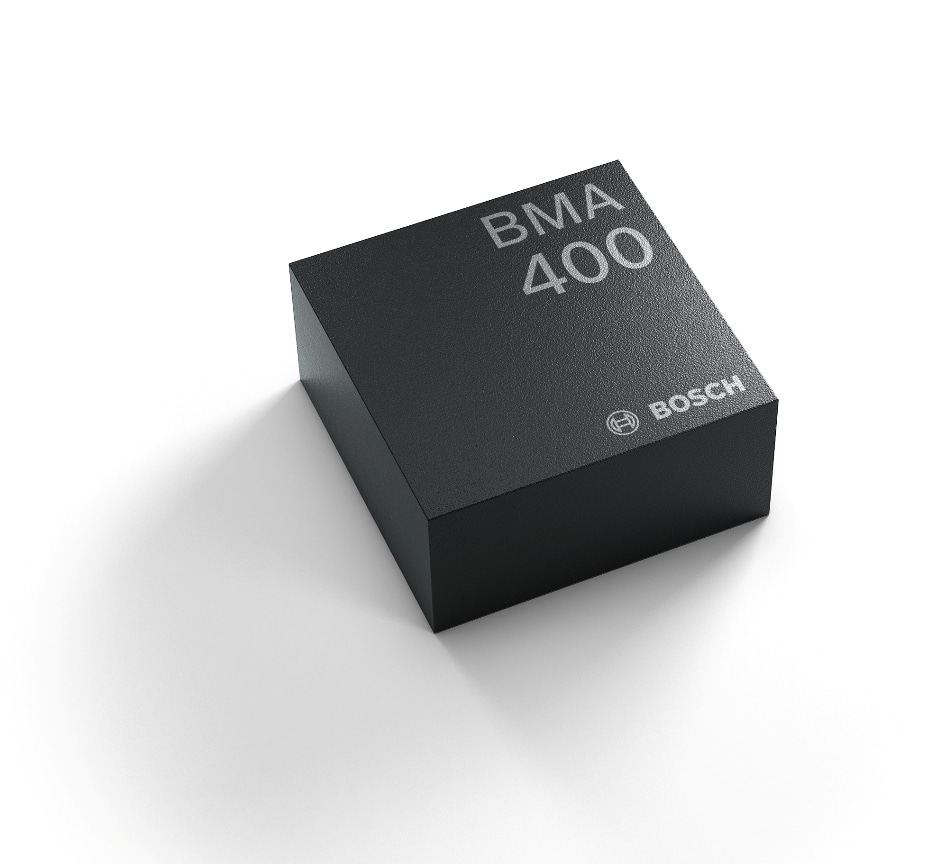Bosch Sensortec's BMA400, an ultra-low power MEMS acceleration sensor for IoT and wearable applications, is now available worldwide through distributors.

Thanks to its low current consumption, embedded plug-and-play step counting and activity recognition features, the BMA400 substantially extends battery lifetime of wearables such as smart watches and fitness trackers. It can wake up automatically when it detects motion and returns to sleep mode when the movement ends, thus avoiding waking the main application processor. This feature significantly reduces battery consumption to extend charging intervals.
For Internet of Things (IoT) applications like indoor climate systems and security systems in smart homes, the BMA400’s continuous measurement capabilities and always-defined bandwidth make it an ideal choice for hassle-free usage. For example, it can avoid false alarms, by distinguishing between genuine alarms like broken glass and false signals coming from random vibrations. Its ultra-low power consumption means replacing batteries is a far less frequent chore for homeowners. These best-in-class qualities led to the BMA400 winning the prestigious CES 2018 Innovation Award in the category Embedded Technologies.
Ultra-low power plus high performance
Until recently, engineers specifying an accelerometer have had to choose between low power and high performance. Now, the BMA400 has changed that by combining ultra-low power consumption, outstanding performance and advanced features, such as a built-in step counter that uses only 4 µA. The BMA400 draws ten times less current than existing accelerometers. Hence, there is no longer any need for design compromises.
Additional product features
With its built-in voltage regulator, the BMA400 delivers stable performance over a wide supply voltage range. It offers flexible device tuning for power consumption, noise and ODR (output data rate) parameters. The BMA400 has a current consumption of 14 μA at highest performance, continuous measurement and a noise density of 180 μg/√Hz. This drops to just 1 μA and below in the device’s ultra-low power self-wake-up mode. The compact size of only 2.0 x 2.0 x 0.95 mm³ and the integrated plug-and-play step counter make the BMA400 easy to design into new types of wearables such as regular watches and jewelry.
-1.jpg)